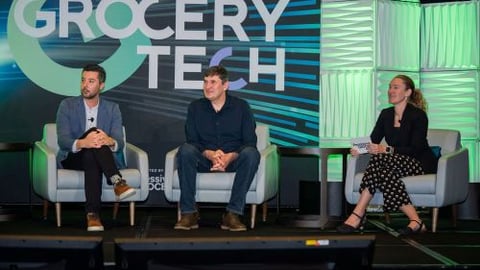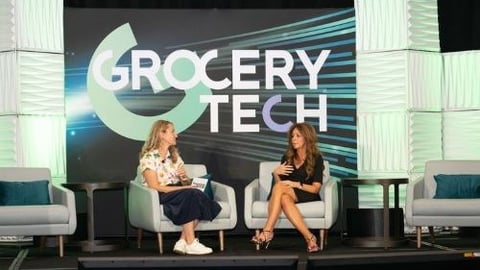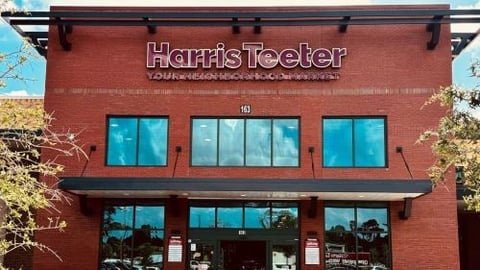How Kroger, Albertsons Are Moving Forward Following Failed Merger
After two years of work on a deal that would have had extraordinary scale in the grocery industry, the attempted merger of The Kroger Co. and Albertsons Cos. was ultimately blocked by regulators and terminated in December 2024.
The two food retailers have since publicly blamed one another for the botched $24.6 billion business arrangement, in the form of dueling lawsuits. But how has each company’s operations fared following their falling-out? Progressive Grocer took a look at how each retail business has been moving forward.
Executive Moves
Perhaps the biggest news since the failed merger agreement were the c-suite shakeups at both companies that resulted in new leadership.
Kroger: On March 3, Kroger revealed the resignation of CEO Rodney McMullen after an internal investigation into his personal conduct. A company statement emphasized that McMullen’s alleged breach of corporate ethics was not related to the business, including its financial performance, operations, reporting or talent. Ronald “Ron” Sargent, lead director of Kroger’s board of directors, was appointed CEO and chairman of the board on an interim basis.
Kroger also revealed that David Kennerley, former SVP and CFO for PepsiCo Europe, succeeded Todd Foley as SVP and CFO in April.
Albertsons: While not quite as dramatic as the Kroger CEO departure, Albertsons also made news with its own leadership change. On May 1, Susan Morris, EVP and COO, assumed the role of CEO following the planned retirement of Vivek Sankaran. Morris also joined Albertsons’ board of directors, succeeding Sankaran.
Speaking of the board, Steve Feinberg stepped down from the Albertsons board of directors in February, following his nomination to become the U.S. Deputy Secretary of Defense. Frank Bruno was appointed to fill Feinberg’s position.
Operations
Under new leadership, both companies have placed a renewed focus on digital operations.
Kroger: Moving full steam ahead on omnichannel strategies to enhance both its operations and customer experiences, Kroger launched a new e-commerce business unit aimed at centralizing operations. Yael Cosset, SVP and CIO at Kroger, is heading up the e-commerce unit.
Sargent said that the move and Cosset’s appointment will propel growth in Kroger’s e-commerce operations, which took in $13 billion sales during the most recent fiscal year. “Accelerating Kroger’s e-commerce growth is a top priority,” added Sargent. “As the architect of Kroger’s digital strategy, Yael will continue to make it easier for customers to shop for our fresh, affordable food.”
“The interim CEO, Ron Sargent, has not been timid about moving forward strategically,” noted Carol Levenso, director of research at independent bond research firm Gimme Credit. “He has consolidated the companyʼs e-commerce operations, announced the closing over the next 18 months of 60 unprofitable stores and has begun a comprehensive review of the e-commerce business and noncore assets.”
On the retail media side of things, Kroger Precision Marketing (KPM) brought incremental sales reporting to self-service programmatic campaigns. Incremental sales measurement is now available for qualified campaigns placed through The Trade Desk. The new capability isolates the impact of media spend by comparing exposed audiences with a control group that mirrors the advertising audience. Progressive Grocer was able to find out more from Brian Spencer, KPM’s marketing director, this past February.
Albertsons: Meanwhile, during Albertson' Q3 earnings in January, then-CEO Vivek Sankaran observed that retail media is one of the grocer’s biggest opportunities for business reinvestment. Since then, the company’s retail media arm has revealed several advancements.
The Albertsons Media Collective launched an API that will enable advertisers to integrate Albertsons campaign performance data into their own measurement models for analysis. Complementing these efforts, Albertsons Media Collective is partnering with TransUnion to offer its advertisers TruAudience marketing mix modeling measurement to unlock ease and efficiency in comparing performance across retailers and channels.
In March, the Albertsons Media Collective extended its partnership with omnichannel advertising management platform ADvendio. The retail media arm for Albertsons first adopted the platform last year to simplify its advertising workflows, improve integration between sales and ad order management, and automate important processes.
Albertsons Media Collective also recently launched an in-store digital display network pilot through a partnership with STRATACACHE Inc. In addition to creating a more engaging shopping experience for customers, the program will help provide insights through advanced measurement capabilities for brand partners, allowing for proof of play, direct sales attribution and sales lift.
[RELATED: Albertsons Focuses on 4 Digital Platforms for Growth]
In addition, shortly following its failed merger with Kroger, Albertsons began reorganizing its regional structure. The grocer is combining its Intermountain and Denver divisions.
The region that now encompasses most of Idaho, Montana and much of Wyoming, as well as Colorado, will be known as the Mountain West Division.
An Albertsons representative confirmed the divisional consolidation to Progressive Grocer, sharing that the changes will help the company “operate in new and innovative ways as we serve our customers and communities.”
Private Label
Store brands continue to provide strength and growth opportunities for grocers. This is an area where both Kroger and Albertsons have invested their dollars.
Kroger: In Kroger’s first quarter of fiscal 2025, private label outperformed national brands for the seventh straight quarter. In March, the company’s assortment of products sold under its Our Brands umbrella added five new items: Salad Kits, Kettle Style Tortilla Chips, Restaurant Style Italian Dressing, Organic Instant Mushroom Tea, and Muffins. The retailer is on track to launch more than 900 new items in 2025.
Albertsons: For its part, Albertsons launched its latest Own Brand, Chef’s Counter. The new private label is first debuting with a selection of ready-to-cook marinated meats. Albertsons plans to expand its Chef’s Counter line next year by introducing premium selections in the deli and frozen sections, along with globally inspired products in the center store. To celebrate the launch, Albertsons partnered with renowned chef and TV personality Antonia Lofaso as the brand’s first ambassador.
Cincinnati-based Kroger employs nearly 410,000 associates who serve more than 11 million customers daily through an e-commerce and store experience under a variety of banner names. The grocer is No. 4 on The PG 100, Progressive Grocer’s 2025 list of the top food and consumables retailers in North America.
As of Feb. 22, Albertsons Cos. operated 2,270 retail food and drug stores with 1,728 pharmacies, 405 associated fuel centers, 22 dedicated distribution centers and 19 manufacturing facilities. The Boise, Idaho-based company operates stores across 34 states and the District of Columbia under more than 20 well-known banners. Albertsons is No. 9 on The PG 100.
PG also named both Kroger and Albertsons among its Retailers of the Century.






